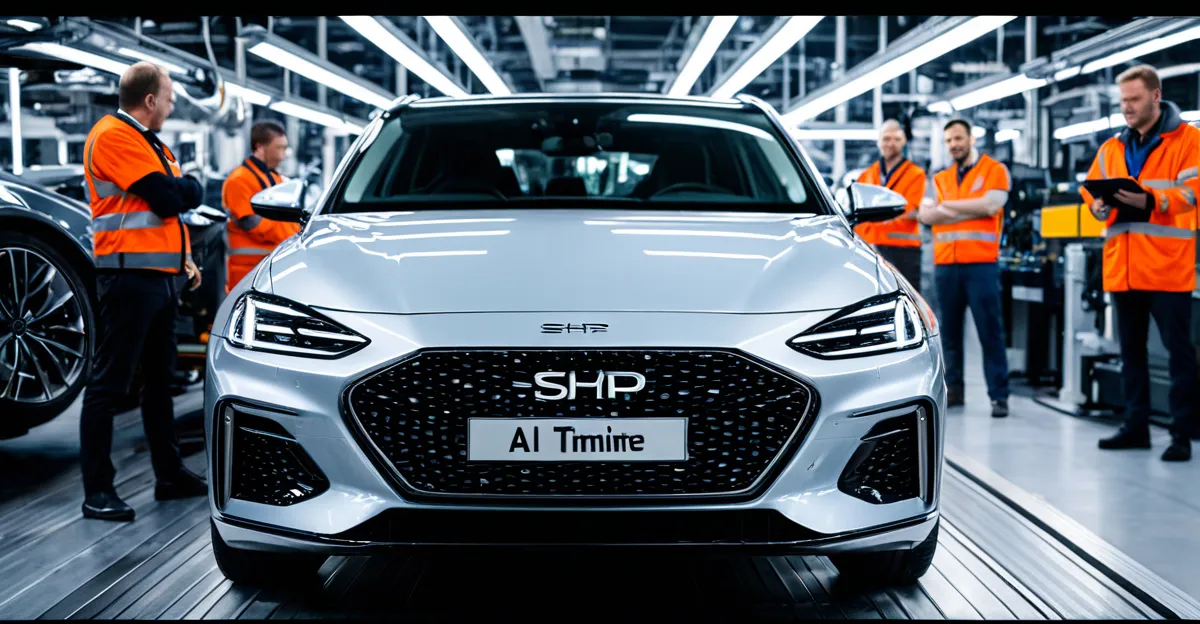Transformative Impact of AI on UK Automotive Manufacturing
Artificial intelligence (AI) is reshaping the UK automotive industry through extensive integration of automation, robotics, and data-driven decision-making. Within manufacturing plants, AI systems automate repetitive and complex tasks, streamlining assembly line operations while enhancing precision. This shift to automation in the UK car industry enables factories to increase production speed and consistency, reducing human error significantly.
Robotics powered by AI enable high adaptability on production lines, adjusting quickly to design changes or demand fluctuations. Data analytics, another facet of artificial intelligence manufacturing, plays a crucial role by providing real-time insights that optimize workflow and forecast maintenance needs, which minimizes downtime across UK automotive factories.
Also to see : How is Electric Vehicle Adoption Transforming the UK’s Automotive Industry?
These technologies collectively foster more agile, efficient manufacturing processes, which are vital as UK car manufacturers compete globally. The competitive landscape is evolving intensely; companies embracing AI gain advantages including faster time-to-market for new models and improved product quality. AI in UK automotive industry is not just a tool but a strategic lever driving innovation and operational excellence.
Key Applications of AI in Automotive Production
AI automation drives profound changes in UK automotive manufacturing by streamlining assembly lines. Robotic systems equipped with AI handle repetitive and precise tasks, significantly boosting throughput and reducing errors. This automation UK car industry adoption supports faster production cycles while maintaining high quality.
Also read : How is the UK automotive industry innovating in electric vehicles?
Another vital application is quality control AI. Advanced vision systems powered by AI analyse every component with exceptional accuracy, identifying defects much earlier than traditional methods. Predictive analytics further refine quality assurance by forecasting potential failures, enabling proactive interventions before issues escalate.
Supply chain management in UK automotive manufacturing is also optimised through AI-driven logistics and forecasting. AI algorithms analyse massive datasets to predict demand fluctuations, coordinate inventory levels, and enhance delivery schedules. These applications reduce delays and costs, creating more resilient and responsive supply chains.
Together, AI automation, quality control AI, and AI supply chain management reshape production workflows. Their integration empowers manufacturers to increase efficiency, maintain consistent quality, and respond agilely to market demands—key competitive advantages in the evolving UK automotive sector.
Benefits and Opportunities Offered by AI Adoption
Artificial intelligence manufacturing brings significant AI benefits automotive production, chiefly by enhancing efficiency in car manufacturing UK. Integrating AI reduces production costs through minimised downtime and optimised resource allocation. For example, AI predictive maintenance identifies machine faults early, preventing costly interruptions that previously slowed UK car factories.
Moreover, AI opens promising innovation opportunities in design and customisation. Manufacturers employ AI algorithms to analyse customer preferences and market trends, enabling rapid prototyping of bespoke vehicles. This adaptability allows UK automotive firms to differentiate products and cater to niche segments more effectively.
From an operational standpoint, AI-driven automation accelerates workflows and improves product quality. Companies gain competitive advantages by delivering higher volumes faster while maintaining exacting standards. These advantages enhance the UK car industry’s global standing amidst intense international competition.
In addition, smart AI tools facilitate sustainable manufacturing practices by optimising energy usage and waste reduction. Through these multiple benefits, AI adoption becomes a lever for growth and resilience, empowering UK manufacturers to innovate continuously and operate with unmatched agility.




